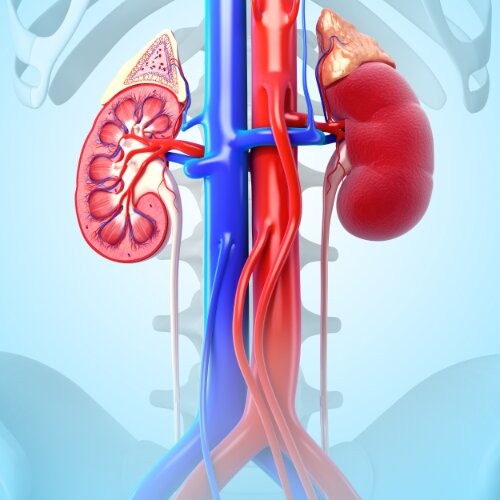You have 2 kidneys, 1 on each side of your body just under your ribcage on either side of your spine (backbone). As your blood circulates around your body it goes through your kidneys and is filtered to remove waste. Your kidneys turns this waste and excess fluid into urine (pee).
Their main function is to remove waste products from your body and to balance your body's fluid. However, your kidneys also perform other tasks related to hormones, making red blood cells and filtering out medicines. Read more about how your kidneys work.
 Image credit: Canva
Image credit: Canva






